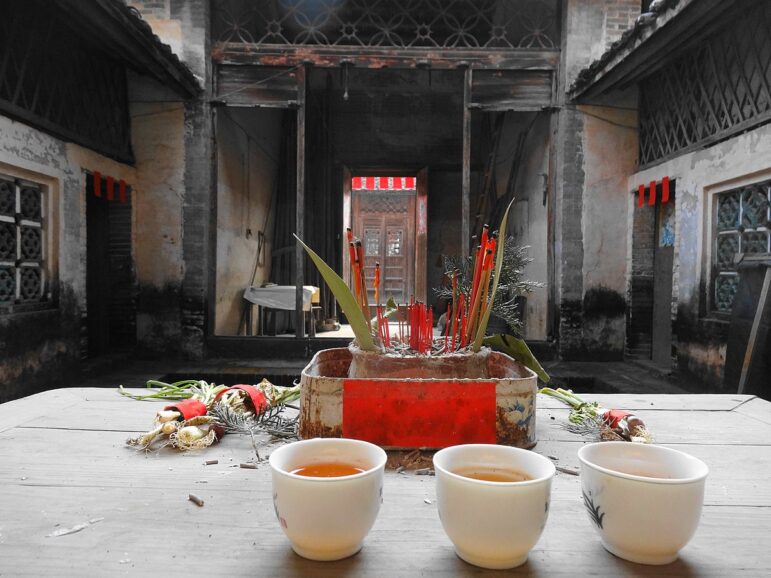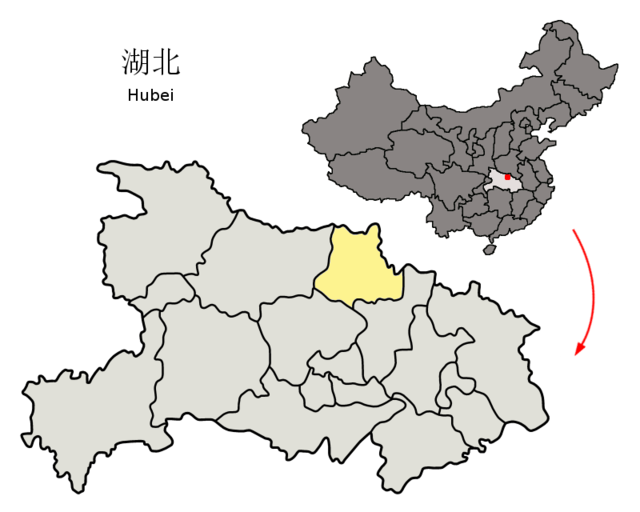BEIJING – Large protests blocking a national highway erupted earlier this month in Guangshui, administratively within Suizhou City in the north-central part of Hubei province in central China. Protestors were criticizing a new policy on cemetery reform which they say is an attack on the tradition of ancestor veneration.
In 2014, China began to tackle the problem of limited land available to bury their dead. The Chinese Ministry of Civil Affairs which is responsible for societal issues, responded to the problem saying that it was “targeting a cremation rate of close to 100% by the end of 2020”. The Chinese government insists this is to promote a greener world and financially sound choices as the government-controlled Xinhua News Agency reported in 2019.
Like most cultures, Chinese burial practices are complex and beyond the scope of this article but there are two main issues: cremation is rare and, in Chinese folk religion, graves are considered the earthly dwelling of the souls of the deceased. Gravesites are places of veneration and sites to commune with ancestors. The Chinese proverb, “Falling leaves return to their roots” (落叶归根) underscores the belief and makes inhumation the dominant practice.

The censer and 3 cups of tea as offering to Ancestor [Image credit: DragonSamYU CCA-SA 4.0
Knowing where your body will be interred also means that many people, especially the elderly, begin rituals to start the transition to death by purchasing objects like their coffins, and burial locations are usually part of family ancestral tombs chosen using Feng Shui. It is part of the preparation for the afterlife.
In 2017 and over the subsequent year, the Ministry of Civil Affairs issued additional reforms. Municipalities started to regulate the selling of cemetery plots. In Suizhou City, cemeteries and presumably private citizens selling plots must seek regulatory approval for any transaction. The move was reported as a way to curtail the burial of individuals from nearby Shanghai where burial plots had become scarce.

Location of Suizhou Prefecture within Hubei, China. Image credit: Croquant CCA 3.0
In 2019, some municipalities began enforcing the cremation policy to achieve the 100% target mentioned in 2014. In some localities, authorities confiscated objects like coffins purchased for the afterlife. Some elderly responded by committing suicide so they would be buried before the enforcement deadline.
Despite multiple cases of the elderly committing suicide in protest, authorities persist with the burial reform. This has compelled some people to secretly bury their loved ones to avoid cremation. If discovered, police officers are sent to exhume graves and cremate corpses forcibly. These actions have sparked widespread discontent among the population.
While mandatory cremation exists now, in many places, especially rural areas, the practice is overlooked in favor of the traditional folk religious practice of burial.
But no more, at least in the Suizhou area.
As of March 2024, everyone will buried in “public welfare cemeteries” with a policy of “three 100%” – “100% of uniform funerals, 100% of cremations, and 100% of burial of the ashes in the public welfare cemeteries.”
The Chinese government says every citizen must buy a burial site for the ashes for 3,000 yuan (about $416). Those who cannot pay may face jail time. The purchaser also agrees this is not a purchase but rather a rental for twenty years.
The policy also dismantles ancestral burial sites as well.
Some skeptics noted that the rise in public cemeteries coincides with the real estate crisis in China and that the cemeteries are an opportunity to recover lost revenue through a “discovered business opportunity.”
The government did not specify what would happen to the remains after twenty years. Another part of the government’s policy splits spouses if they die separately on different days: “If one spouse died and has been buried, and a tomb has been reserved for the other spouse, if the other spouse dies after 0:00 on March 20, 2024, s/he cannot be buried with the spouse who was previously buried. S/he must be cremated, and the ashes must be buried in the public welfare cemetery.”
For its part, the Chinese government says it is part of the broader strategy to eliminate “feudal superstitions.” The Wild Hunt has previously reported on China’s attempt to curtail folk religion. In August 2023 during the Hungry Ghost festival, the government of Yongren County in the southwestern province of Yunnan echoed the national policy and wrote in a statement, “We must consciously resist worship activities with feudal superstitions, break old habits such as burning spirit money, setting off firecrackers and leaving offerings.” The people must look for ” more civilized ways to make memorial offerings,” one cemetery management office wrote in WeChat/Weixin (微信).
The magazine Bitter Winter reported one individual saying, “We can accept cremation, but even if they are cremated, the ashes of our deceased relatives should be placed in the ancestral graves. With the new cemetery system, where will our children and grandchildren go to worship their ancestors?”
The Wild Hunt is not responsible for links to external content.
To join a conversation on this post:
Visit our The Wild Hunt subreddit! Point your favorite browser to https://www.reddit.com/r/The_Wild_Hunt_News/, then click “JOIN”. Make sure to click the bell, too, to be notified of new articles posted to our subreddit.
